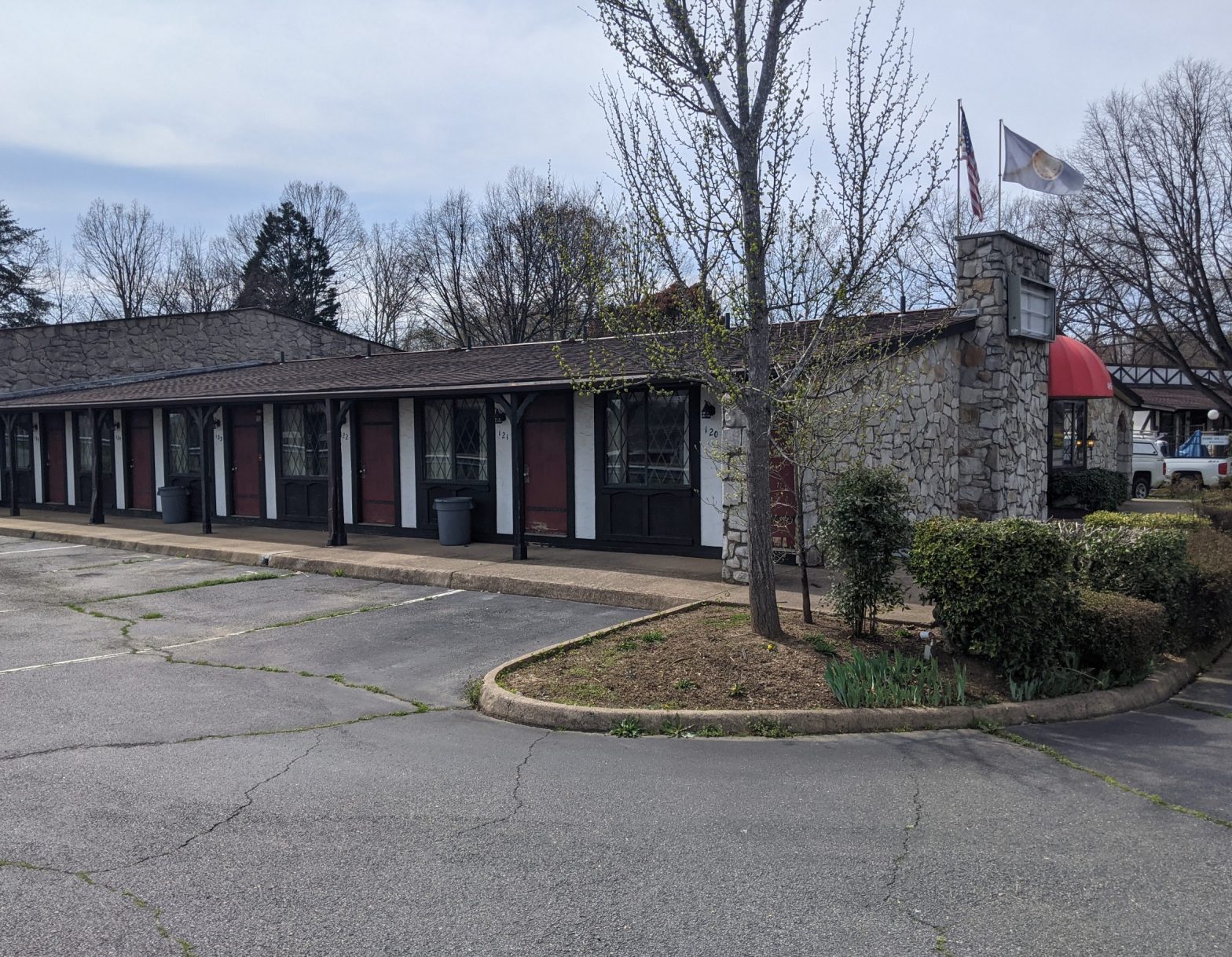After purchasing the Red Carpet Inn off Route 29 in Albemarle County last March, the Piedmont Housing Alliance renovated the 40-year-old rundown motel, and transformed it into an emergency shelter for people experiencing homelessness, thanks to a $4.25 million grant from the Charlottesville Area Community Foundation. Since the low-barrier shelter—managed by People and Congregations Engaged in Ministry and the Blue Ridge Area Coalition for the Homeless—opened its doors last May, it has provided 177 unhoused people a safe, welcoming place to stay, in addition to meals, clothing, case management, health care, employment assistance, substance abuse treatment, and other necessities and resources.
But in April, the Premier Circle shelter will shut down, and the former motel will be transformed once again into something desperately needed in the Charlottesville area: affordable housing.
Virginia Supportive Housing plans to start building 80 permanent supportive housing units at the site in May. The studio apartments will be available to single adults experiencing homelessness, or earning below 50 percent of the area median income. On-site supportive services, like case management, will be available to residents, as well as a fitness center, community room, laundry facility, and other amenities. VSH has received low-income tax credit awards to help pay for the approximately $20 million project, but is working to secure around $3 million more in funding. Construction is expected to last about 15 months, and be completed in fall 2024, according to Director of Real Estate Development Julie Anderson.
After VSH finishes construction, the PHA plans to build around 50 affordable housing units for low-income people making no more than 60 percent AMI. While the project’s design has not been finalized yet, PHA CEO Sunshine Mathon expects the complex to be a mix of one-, two-, and three-bedroom units, and says the residents may have access to some of VSH’s services, like counseling. Over the next one to two years, PHA will apply for low-income tax credits for the project, and hopes to complete construction 14 to 18 months after breaking ground.
“We’ve been blessed to have a supportive city, county, [and] state to make this project work,” says BRACH Executive Director Anthony Haro. “We’re excited for the next stage.”
This month, the City of Charlottesville and Albemarle County gave $200,000 each to the shelter, covering its operating expenses from January until it closes its doors in April—a “big relief” for the shelter’s management, says Haro.
“A lot of the funding we used … over the last two years has been COVID relief funding at the state and local levels,” says Haro. “These last few months, we needed some more funding support to make it through, and really help folks transition over these next four months into housing.”
Since this spring, PACEM and BRACH have been working closely with shelter guests—many of whom are elderly, and have serious illnesses—to create housing plans and find them a new place to live, in partnership with local housing authorities. In mid-October, the shelter stopped accepting new guests, in order to focus on transitioning guests into permanent housing. Between 60 and 70 people currently live at the shelter, according to PACEM Executive Director Jayson Whitehead.
“We’ve had different types of housing vouchers dedicated to folks living at this site, so we’ve been able to transition around 15 folks to permanent housing since September,” says Whitehead.
The deteriorating condition of the former motel has further stressed the need for permanent housing solutions. Though 92 of the facility’s 115 rooms were renovated, “we did start to really experience at some point this past summer really sizable failure in rooms,” says Whitehead, “like roof leaks, floors giving way—all types of things that really were reducing the amount of rooms we had to offer.”
Once the shelter shuts down and housing construction begins, PACEM and BRACH will still work to find emergency shelter for people experiencing homelessness, and connect them with affordable housing. During the cold winter months, PACEM will also continue to offer overnight shelter at local churches, gymnasiums, and other community spaces. The organization opened its annual temporary congregate shelters on November 14, and plans to close them at the end of March. “We’ve been pretty full,” says Whitehead.
Additionally, BRACH currently has two hotel rooms available for unhoused people who are at high risk of becoming severely ill or dying from COVID-19 and need to avoid congregate settings, thanks to a partnership with the University of Virginia.
“We haven’t received many requests [for the rooms] … over the past six months or so, [but] that may change this winter,” says Haro. “It’s been a great resource when it comes up.”
But to ensure no one has to sleep on the streets at any time of year, the organizations are working to eventually open a permanent shelter. When PACEM’s temporary shelters are not running, the Salvation Army’s 58-bed overnight shelter is the sole year-round option for unhoused people in Charlottesville—and it’s often at capacity.
“There’s a clear need for [another year-round shelter] in the community,” says Haro. “And there’s been an interest from PACEM and our partners to make that happen.”
